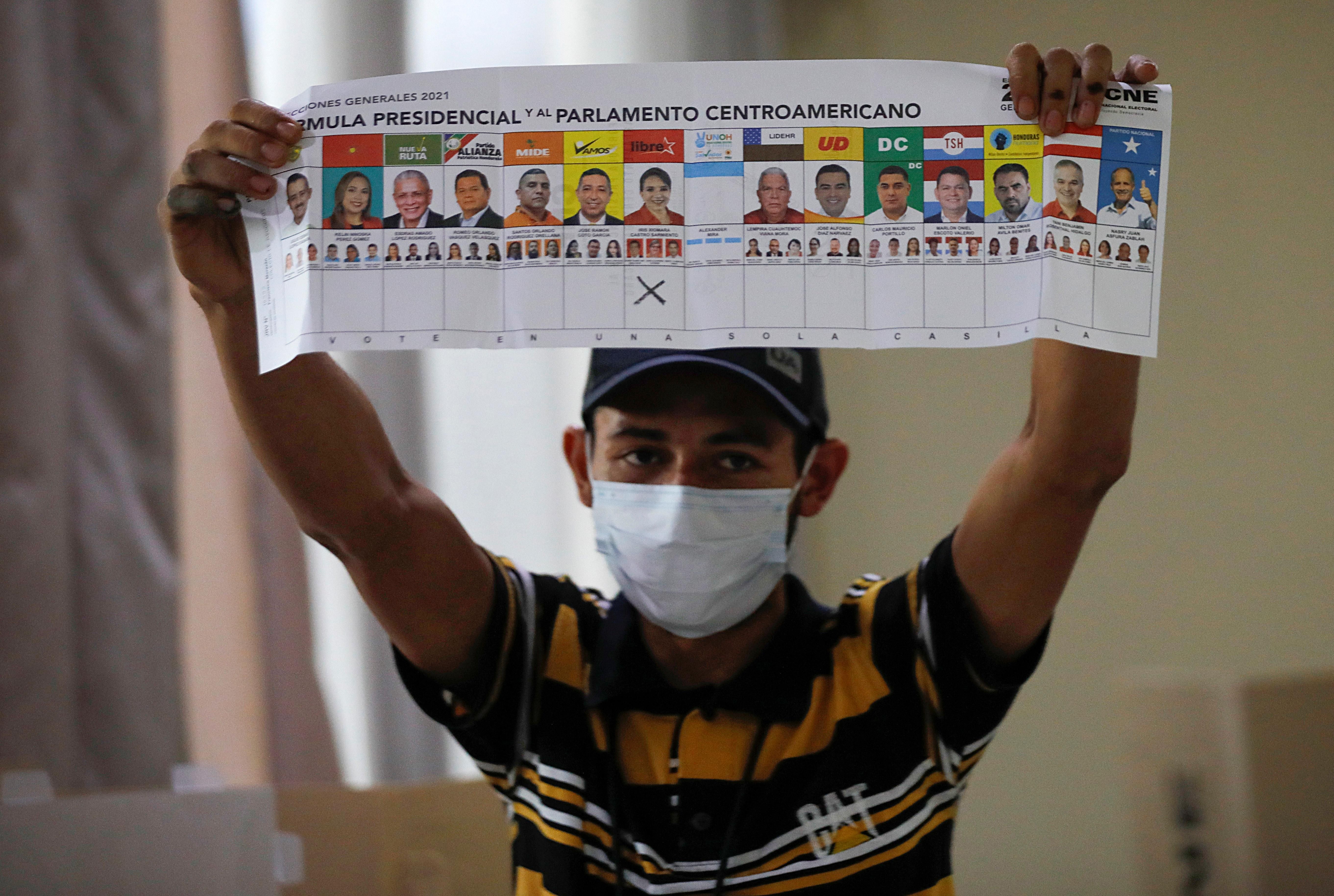Honduras braces for post election upheavals (again). Leftist opposition candidate Xiomara Castro jumped out to a sizable early lead in Sunday's Honduran presidential and legislative elections, but her rival is also claiming victory in a vote already marred by fears of violence and several confirmed cyberattacks on voting systems. Castro's main opponent is businessman and capital city mayor Nasry Asfura, candidate of the ruling center-right National Party. If Castro wins, she would become the Central American country's first female president, and the first leftist to hold power since her husband, Manuel Zelaya, was ousted in a coup 12 years ago. The stakes are high for Honduras, which has been wracked by gang violence, sky-high murder rates, and poverty for years. Widespread irregularities in the 2017 re-election of current president Juan Orlando Hernandez led to days of deadly violence, and Hernandez himself has since been placed under US investigation for ties to drug traffickers. Outside of Honduras both Mexico and the US will be watching closely — hundreds of thousands of Hondurans have fled instability in their home country in recent years, traversing Mexico to seek opportunity in the USA: after Mexicans, Hondurans are currently the second most common nationality apprehended at the US southern border.
More from GZERO Media
Jordan Bardella, president of Rassemblement National or National Rally, gives a speech and flies French flags at a rally in support of Marine le Pen after her conviction on April 6, 2025.
Jordan Bardella, the 29-year-old president of France’s far-right National Rally, aka RN, has announced his readiness to run for the country’s presidency in 2027 if current party leader Marine Le Pen remains barred from contesting the race.
Polls tighten as Canadians head to the polls. Will Liberals pull off the ultimate comeback?
It’s Election Day in Canada on Monday, and many are wondering whether newly installed Liberal Prime Minister Mark Carney will complete a shocking comeback for the party of former PM Justin Trudeau. Final-day campaigning was impacted by a deadly car-ramming attack in Vancouver.
At the Vatican on Saturday, US President Donald Trump sat down with Ukrainian President Volodymyr Zelensky for a meeting the White House described as “very productive,” and which Zelensky said had the “potential to become historic, if we achieve joint results.”
President Donald Trump raises a fist during a ceremony where he signs two executive orders that will lead to reciprocal tariffs against other countries that charge tariffs on US goods.
Barely three months in, President Trump has bashed America’s closest European allies and spooked NATO into worrying about its survival, taken a chainsaw to US foreign aid programs, pulled the rug out from under Ukraine, threatened to expand US territory for the first time since the 19th century, and started a global trade war that’s pushed protectionism to its highest levels since the Great Depression. That’s a lot for 100 days, and it seems chaotic, but there are a few basic aspects of Trump’s worldview and commitment to “America First” that are consistent and worth understanding.
All presidents rely on executive orders, but in his first 100 days back in office, Donald Trump has taken it to a whole new level.
The US and Iran are holding nuclear talks again: What kind of song and dance is preventing a new deal? #PUPPETREGIME
Revisiting the Vietnam War 50 years later, with novelist Viet Thanh Nguyen and author Mai Elliott
Listen: Two authors with personal ties to the Vietnam War reflect on its enduring legacy and Vietnam’s remarkable rise as a modern geopolitical player.
Fifty years after the fall of Saigon (or its liberation, depending on whom you ask), Vietnam has transformed from a war-torn battleground to one of Asia’s fastest-growing economies—and now finds itself caught between two superpowers. Ian Bremmer breaks down how Vietnam went from devastation in the wake of the Vietnam War to becoming a regional economic powerhouse.
Eurasia Group and GZERO Media are seeking a highly creative, detail-oriented Graphic and Animation Designer who lives and breathes news, international affairs, and policy. The ideal candidate has demonstrated experience using visual storytelling—including data visualizations and short-form animations—to make complex geopolitical topics accessible, social-friendly, and engaging across platforms. You will join a dynamic team of researchers, editors, video producers, and writers to elevate our storytelling and thought leadership through innovative multimedia content.
